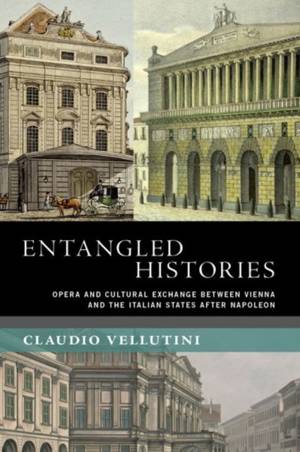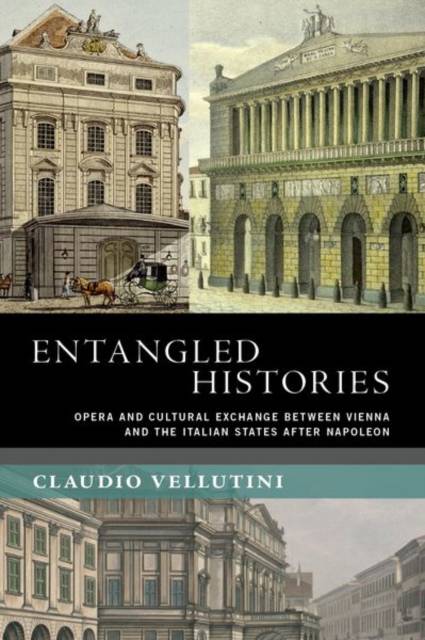
- Afhalen na 1 uur in een winkel met voorraad
- Gratis thuislevering in België vanaf € 30
- Ruim aanbod met 7 miljoen producten
- Afhalen na 1 uur in een winkel met voorraad
- Gratis thuislevering in België vanaf € 30
- Ruim aanbod met 7 miljoen producten
Zoeken
Entangled Histories
Opera and Cultural Exchange Between Vienna and the Italian States After Napoleon
Claudio Vellutini
€ 212,95
+ 425 punten
Omschrijving
Through a wealth of archival documents and printed materials, Entangled Histories shows how, over the first half of the nineteenth century, opera helped redefine questions of collective identity in the Austrian empire, serving as a testing ground for, among others, theories of language and education, notions of fatherland and citizenship, artistic expressions of cultural hybridity, new forms of managing economic and cultural capital, and practices of collective memory. By emphasizing the entanglements between opera's aesthetics, its social function, and the ideology underpinning its system of production in different institutional and urban contexts, this book places opera at the intersection of a broad set of political and cultural relationships that for several decades connected Vienna and prominent Italian operatic centers, contributing to a transnational historiography of the art form in the nineteenth century. It also argues that new modes of production and dissemination of opera between Vienna and the Italian states contributed to official cultural policies promoting a supranational identity of the Austrian empire-one that acknowledged, but ultimately transcended cultural differences. As the state emerged victoriously yet completely transformed from over two decades of wars against revolutionary and Napoleonic France, opera-with its long tradition of impresarios, composers, librettists, and performers on the move-became a key tool for bringing some of the different cultural traditions of the Austrian empire into a fruitful mutual dialogue.
Specificaties
Betrokkenen
- Auteur(s):
- Uitgeverij:
Inhoud
- Aantal bladzijden:
- 360
- Taal:
- Engels
- Reeks:
Eigenschappen
- Productcode (EAN):
- 9780197656563
- Verschijningsdatum:
- 23/05/2025
- Uitvoering:
- Hardcover
- Formaat:
- Genaaid
- Afmetingen:
- 160 mm x 226 mm
- Gewicht:
- 657 g

Alleen bij Standaard Boekhandel
+ 425 punten op je klantenkaart van Standaard Boekhandel
Beoordelingen
We publiceren alleen reviews die voldoen aan de voorwaarden voor reviews. Bekijk onze voorwaarden voor reviews.








